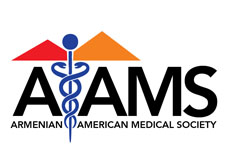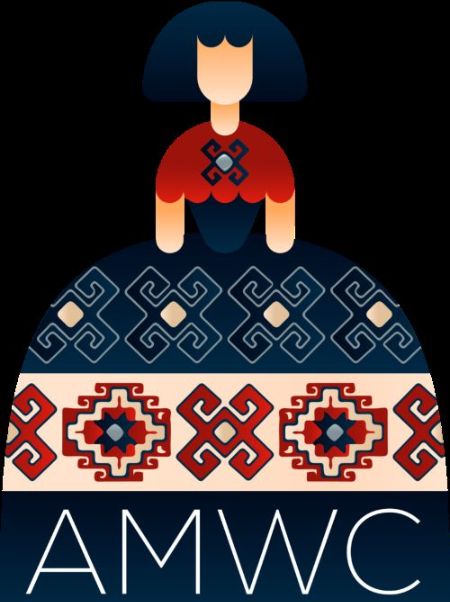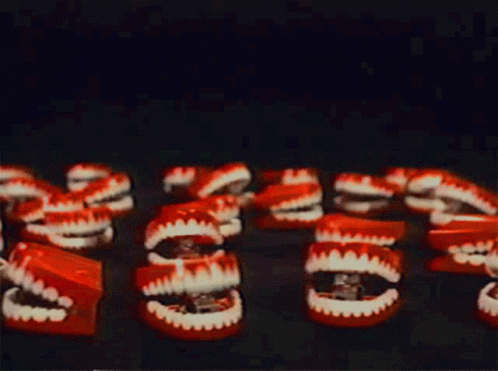 |
This page contains correspondence regarding CME planning for Dental Sessions at AMWC 2025
This email address is being protected from spambots. You need JavaScript enabled to view it. or telephone +1-650-542-8442
AAMS plans to issue Dental credits. |
 |
Creating a national oral health program for Armenia
See also https://amicnow.org/273 which describes our initial plan to create a regularly scheduled educational series prior to the Congress to explore the various aspects of a national dental health program.
See also https://amicnow.org/292 which is a planning document for the Dental Specialty sessions, covering implantology, orthodontics, oral tumors and respiratory issues.
See below for the CME planning data for the National Dental Health Strategy session
updated 24 May 2025
the short story:
Creating a National Prevention Program for the Oral Health of Children in Armenia
| educational needs |
several challenges in Armenia:
. |
| designed to change |
. |
|
appropriate formats
. |
lecture style presentation of our preliminary roadmap to a national prevention program, followed by roundtable discussion and question/answer
|
|
competencies
. |
systems-based practice, professionalism, interdisciplinary teams, employ evidence-based practice, utilize informatics, quality improvement
|
|
analyzes change
|
the success of this program will be measured by creation of new training tools, adoption of new public health programs and increased partnership among NGOs, Diasporan associations and practitioners on the ground in Armenia
|
the long story:
 |
Objective:
Organize a Dental/oral health session and create a white paper detailing a road map for a comprehensive preventive oral health program for Armenia. The summay to be presented and discussed during the 14th Armenian Medical World Congress (AMWC 2025)
Purpose/Vision:
Produce measurable change in Armenian dental health as a result of our collaboration (see the AMWC2025 Mission Statement, below)
- Interested partners:
Armond Kotikian MD, DDS, FACS, Glendale California, maxillofacial surgeon, member AAMS - Georges Mosditchian DDS, Paris France, dentist, member of UMAF-Paris
- Jerry Manoukian MD Mountain View California, internal medicine, CME, member AHABA
- Berdj Kiladjian DDS, Boston, cofounder of Hand in Hand
- Irina Lazarian, Alisa Badalyan DDS, Howard Karagheusian Medical Benevolent Public Organization
- Dr Harmik Minassian DDS, dental surgery, implantology, Lyon, Hand in Hand
- Bedros Yavru Sakuk ChDF, DDS, Paris France, Représentant de l’Armenie à la FDI (Fédération Dentaire Internationale), NYU Professor, Depts of Restorative Dentistry & Periodontics
- Arnold Weiss DDS, Boston, Tufts Univ. Professor of Dentistry, Dept of Pediatric Dentistry
- Myron Allukian Jr, DDS, MPH Harvard School of Dental Medicine
- David Hovhannisyan Founder “White Castle” Dental Medical Clinic, perioprosthodentist
- Gayane Malkhasyan
Key Points
- The discussion revolves around organizing pre-conference meetings to develop ideas for a comprehensive preventive oral health program for Armenia, with the aim of presenting these findings at the Congress in Madrid.
- Creating a white paper detailing a roadmap for a comprehensive preventive oral health program is proposed
- possibility of broadcasting the dental session at the Congress in Madrid to a larger audience in Armenia
- need to gather data on the oral health needs of the Armenian population, particularly in different age groups and geographic areas
- fluoridation as a method to improve oral health in Armenia is discussed, with considerations for its implementation and potential impact.
- importance of prioritizing the components of the oral health program based on their potential impact and the need for a government strategy to ensure the success and expansion of the program is highlighted.
- The necessity of involving key decision-makers and stakeholders, including the state dental school and the Ministry of Health, in the development and implementation of the oral health plan is stressed.
Potential issues:
- Collaboration among dental health providers, diasporans, Ministry of Health, others. One of my (JM's) main goals for the session, one that we can and should achieve, is to get the oral health professionals to know each other, form collaborations and possibly avoid reinventing the wheel with each project. Imagine building larger teams to achieve what smaller teams and individuals are struggling to accomplish now?
- Fluoridation
- Preventive health
- Dental training in Armenia
- Electronic medical records for dental care?
- Training for dental assistants and hygienists
- Establishing oral health as a public health priority
Regarding Continuing Professional Development credits
(CDE, CME, European and Armenian credits)
Dear All
|
Mission statement |
→ |
describe the problem |
→ |
what results do we want? |
→ |
what does success look like? |
- Mission statement
- describe the problem
- Dental services are not evenly distributed among the population.
- Preventive care is not routinely sought, and dental visits are often delayed until there is an abscess.
- Dentistry in Armenia may also be experiencing a surplus of inexperienced dental graduates similar to what happens in the medical schools.
- Need to create a fluoridation policy.
- Dental assistants and hygienists are described as nurses and are not trained in any dental health procedures.
- we need a map of the dental policy community - who is in MoH, education, ADA
It is unclear whether fluoridation is currently being implemented in Armenia. Fluoridation of salt is an inexpensive way to prevent tooth decay, although past Ministers of Health have been resistant to the idea. A paper was published at AUA regarding the topic:
https://aua.am/chsr/UserFiles/File/new/Hayk%20Kanchinyan.pdf
- what results do we want?
Skeletal discussion by organizing committee
pre-Congress sessions to develop several of these points
presentation of summary conclusions in Madrid with "last chance"
Communication and Informatics are two attributes that could easily make this effort worthwhile, even if patient care or medical knowledge are not addressed.
- Patient care or medical knowledge is fairly obvious if that's what we discuss
- informatics may include upcoming changes to ArMed system
- Systems - based practice may discuss registration and payment systems in Armenia or a system of collaboration among Diasporan volunteers
- Fluoridation: critical thinking and patient care
- (others are possible)
- what does success look like?
- Can we keep track of new collaborations or projects that arise out of our efforts? Even one new collaboration as a result of this Congress will qualify as "Improves Performance".
- A fluroridation policy in Armenia would be a great step forward.
- An agreement to develop training programs?
- Il y a des dentistes compétants en armenie, mais peut-etre il n'y a pas egalité. Les personnes pauvres n'a pas acces aux soins dentaires.
- Il y a besoin pour soins préventifs
- La Mission du congrès est (en anglais) cooperation, coordination, donc travaillerons ensemble. C'est la raison d'etre de CIMA. Comment pouvons-nous travailler ensemble ?
J'aide les organisateurs du Congrès de Madrid à obtenir des crédits CME (Continuing Medical Education) pour les États-Unis, ce qui nous aidera également à planifier les crédits européens et arméniens. En tant que tel, je propose ces réflexions bien que je ne sois pas dentiste.
La situation dentaire actuelle en Arménie est telle qu'il existe des services hautement qualifiés au point qu'il existe une entreprise de tourisme dentaire viable. Bien sûr, si tout était parfait, nous n'aurions pas besoin d'une séance dentaire au Congrès.
Les services dentaires ne sont pas répartis de manière égale parmi la population. Les soins préventifs ne sont pas systématiquement recherchés et les visites chez le dentiste sont souvent retardées jusqu'à ce qu'il y ait un abcès. La dentisterie en Arménie connaît peut-être également un surplus de diplômés dentaires inexpérimentés, similaire à ce qui se passe dans les écoles de médecine.
En attendant, la mission du Congrès met l'accent sur la collaboration entre les professionnels de la santé et les associations ; la déclaration de mission est collée ci-dessous. Il s'agit plus des C (collaboration, connexion, communication...) que d'apprentissage scientifique. C'est là que nous pouvons faire la différence. Réfléchissez à la manière dont les professionnels dentaires intéressés par le volontariat en Arménie pourraient trouver des projets en cours ou former de nouvelles collaborations.
Pensez à des domaines dans lesquels nous pourrions avoir une discussion productive. Qui pouvons-nous inclure dans cette conversation ?
Faites-moi part de vos réflexions. Bachigner
Jerry
| Questions to consider | Answer |
| How many dentists are there in Armenia? |
Generative AI estimates a few thousand Knoema lists 1,943 in 2009 WHO lists density of dentists at 4.2 per 10,000 pop. |
| What is the funding for dental care | |
| What are the dental school programs in Armenia |
Yerevan State Medical University (YSMU)
|
| who are potential collaborators |
|
| Mobile clinics |
Armenian Dental Society of California (working with Paros Foundation)
|
|
See also
Outline Dental Session Planning for AMIC Congress
Oral Health Needs Assessment for Armenia
Preventive Oral Health Strategies
Dental Education and Workforce Issues
Engaging Stakeholders and Government
Congress Logistics and Planning
See also https://amicnow.org/273 which describes our initial plan to create a regularly scheduled educational series prior to the Congress to explore the various aspects of a national dental health program. |